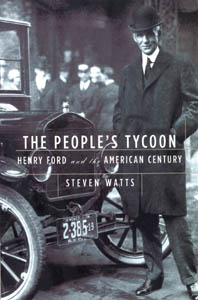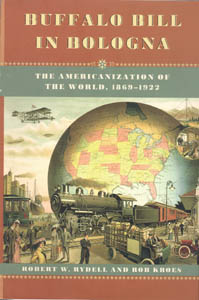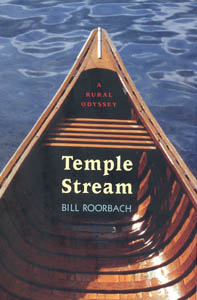![[Metroactive Books]](/books/gifs/books468.gif)
[ Books Index | Silicon Valley | Metroactive Home | Archives ]
—Michael S. Gant
[ Silicon Valley | Metroactive Home | Archives ]
Copyright © 2005 Metro Publishing Inc. Metroactive is affiliated with the Boulevards Network.
For more information about the San Jose/Silicon Valley area, visit sanjose.com.
![]()
Book Box

The People's Tycoon: Henry Ford and the American Century
Henry Ford, father of the flivver, would applaud Chrysler's Lee Iacocca for consorting with Snoop Dogg. Ford, after all, made the automobile a ubiquitous consumer good with some astute publicity stunts: racing cars with daredevil hero Barney Oldfield and going on headline-grabbing camping trips with Thomas Edison. The assembly-line genius would also approve of the "employee discount." Ford pioneered the idea of "low cost and high wages" leading to a better life for everyone (an equation that Wal-Mart has only half understood). Steven Watts' biography provides a detail-packed, if somewhat dry, accounting of Ford's good news/bad news life. The magnate (who sounds like a mutant hybrid of Charles Foster Kane and Montgomery Burns) adopted the Five-Dollar Day in the teens but quashed labor protests in the 1930s. He touted family values while keeping a mistress and tormenting his only son, Edsel. He accumulated a fortune off the Model T, but refused to evolve when other car companies overtook Ford's sales. He lobbied for peace but was a virulent anti-Semite who received a medal from Hitler. (By Steven Watts; Knopf; 614 pages; $30 cloth)

Buffalo Bill in Bologna: The Americanization of the World, 1869-1922
At the turn of the 21st century, we think of globalization as an economic flood tide leveling out national and ethnic differences for the benefit of corporations. In Buffalo Bill in Bologna, historians Robert Rydell and Robert Kroes trace the trend all the way back to the export of American mass culture at the turn of the 20th century. From the PR coups of P.T. Barnum to traveling Wild West shows, from silent movies to picture postcards, American values and myths were marketed to the world—in other words, Charlie Chaplin paved the way for Ronald McDonald. At times, Rydell and Kroes' arguments can be reductionist, implying that disparate incidents added up to an opiate-dispensing conspiracy. But the authors do admit that in many instances (especially popular music), consumers actively subverted supposedly passive entertainments. The analysis can be heavy sledding, but the particulars are often fascinating, including a rundown of late-19th-century world's fairs and an account of Buffalo Bill's warm welcome at the Vatican in 1890. (By Robert W. Rydell and Rob Kroes; University of Chicago Press; 209 pages; $26 cloth)

Temple Stream: A Rural Odyssey
I am generally immune to the back-to-nature urges of college professors, but I'll make an exception for Bill Roorbach, who has spent many years strolling, bushwhacking and canoeing along the Temple Stream near his home in Farmington, Maine. The Temple is hardly the Amazon, but even this modest waterway contains natural, historical and human surprises. The author astutely tracks the landscape-altering activities of the Temple's many beavers, comments on the unforgiving landscape (whose value as farmland peaked more than a century ago) and relates with novelistic flair his encounters with some deeply suspicious locals, mostly notably Earl Pomeroy, a Bunyanesque recluse with a deep mean streak. At times, when detailing his academic duties and his wife's pregnancy, Roorbach is guilty of padding (the book expands on a Harper's Magazine article), but when he's afield, spotting muskrats and catching sight of a bald eagle, Roorbach does justice to his distant mentor in the genre, Henry David Thoreau. (By Bill Roorbach; Dial Press; 288 pages; $24 cloth)
Send a letter to the editor about this story to letters@metronews.com.
From the August 24-30, 2005 issue of Metro, Silicon Valley's Weekly Newspaper.